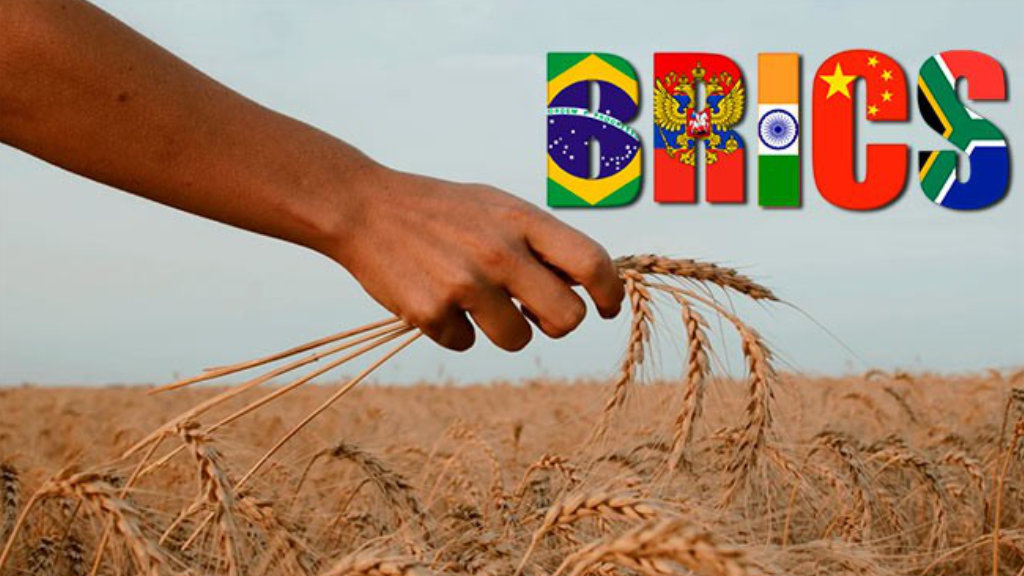Russia is suggesting to fellow BRICS countries that the organisation establishes a grain exchange system, a proposal that would give Moscow greater control over international prices for its agricultural exports.
Frustrated by low global wheat prices, Russia, the world’s largest wheat exporter, has attempted to limit exports at low prices through international intermediaries. Moscow recommended that its leading exporters avoid selling wheat below US$250 at international tenders on October 11.
Russia’s Central Bank and its Finance Ministry have drafted a letter that will be presented to BRICS leaders – agriculture ministers have been invited – to the annual BRICS Heads of State summit on October 22-24. It states “In order to ensure efficient, uninterrupted, and transparent cross-border trading of commodities, Russia proposes to establish a grain trading platform within the framework of the BRICS Grain Exchange.”
Food security, particularly in the context of wheat production and consumption, is a critically important issue for many countries. Wheat is a primary source of nutrition for a significant portion of the global population, being used to produce bread, pasta, and many other food products. In some countries, 800 million people in the world do not have enough food, and any disruption in its production can lead to food shortages and price increases. Additionally, wheat production plays a crucial role in the economy, providing jobs for millions of people, from farmers to workers in processing plants and logistics companies. A decrease in wheat yield – and global warming is having an increasing effect here – can negatively impact the economies of entire regions. In light of this, the establishment of a BRICS grain exchange gains particular significance.
Russia’s proposal also recommends the creation of a BRICS pricing agency, tasked with providing pricing methodologies and market analytics to offer an alternative to the current international pricing through established Western exchanges. During both Covid and the Ukraine conflict, prices on these exchanges fluctuated dramatically and pushed countries such as Egypt and Pakistan out of the buyer’s market as wealthier Western nations out-competed them in pricing. That led to serious food security issues affecting tens of millions of people.
BRICS members China and India are the world’s largest wheat producers, while new member Egypt is the world’s biggest buyer. Other BRICS countries, such as Brazil, and Iran, and regions such as Africa and MENA region are also major grain importers.
Top importers of Russian wheat include BRICS members Egypt and Iran, Saudi Arabia – invited to join and represented by the foreign minister at the summit – as well as Algeria, which considered membership but then dropped the bid.
Russia is actively exploring other markets, such as Latin America, that include BRICS member Brazil, as part of its strategy to boost agricultural exports by 50% by 2030 and become a global agriculture superpower.
The proposal envisages the extension of BRICS grain trading mechanisms to oil, natural gas, and gold in the future.
“This measure will ensure independent pricing and strengthen the sovereignty of the BRICS economies,” the document said. Oil-rich developing nations, including BRICS members Russia and Iran, have achieved substantial control over global oil prices through the OPEC+ agreement.
Further Reading
Russia Sends First Grain Freight Train From Urals To India Via INSTC
Continue Reading





 Русский
Русский









